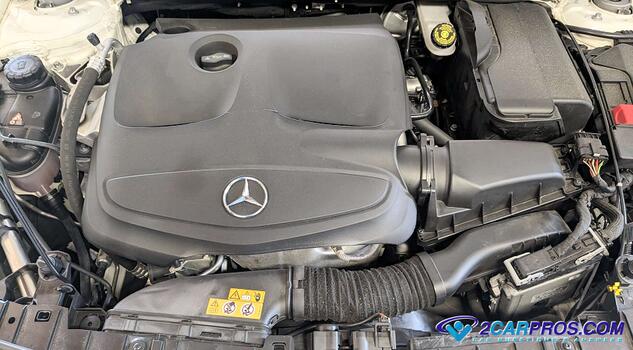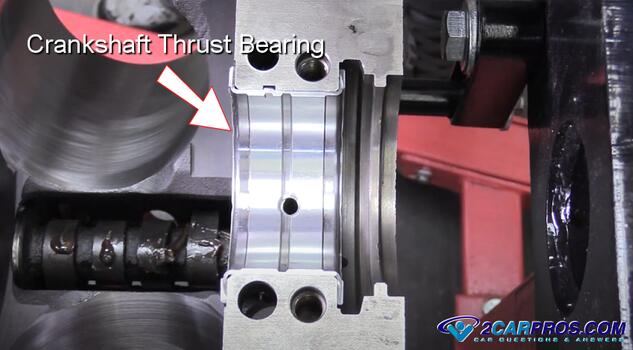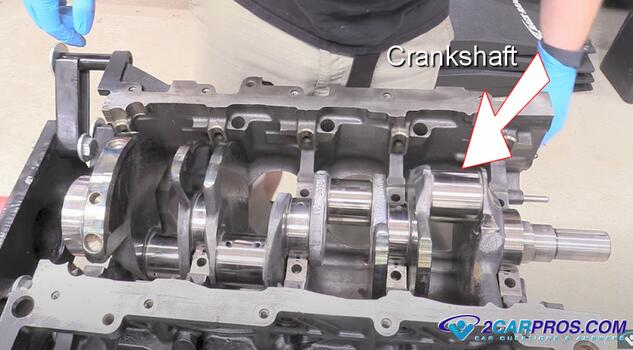Troubleshooting Car Pinging: Acceleration Issues

If you’ve noticed a pinging or knocking sound in your car when you accelerate, it could be a sign of engine knocking or detonation. This abnormal sound, often described as metallic rattling or ball bearings in a can, is indicative of potential problems with the fuel ignition and engine components. The issue may range from a simple need for parts replacement to something more severe, such as engine failure. It is recommended to promptly check on the source of the pinging noise to prevent further complications and ensure the safe operation of your vehicle.
| Characteristics | Values |
|---|---|
| Cause | Engine knocking or detonation |
| Carbon build-up in the combustion chamber | |
| Lean air/fuel mixture | |
| Advanced ignition timing | |
| Faulty EVE/PCV valve | |
| Cooling system problems | |
| Low octane fuel | |
| Solution | Adjust ignition timing |
| Use higher octane fuel | |
| Conduct regular fuel system clean-ups | |
| Use high-quality additives |
Explore related products
What You’ll Learn
- Carbon build-up in the combustion chamber
- Faulty EVE/PCV valve
- Using the wrong fuel
- Engine is too hot
- Ignition timing
Carbon build-up in the combustion chamber
Carbon build-up can be caused by a number of factors, including the use of low-quality fuel. Low-grade fuel often contains contaminants that can lead to critical engine component failure and contribute to combustion inefficiencies over time. Incomplete combustion is another cause of carbon accumulation, as the wasted energy from this process can accelerate the formation of carbon deposits. Specifically, when hydrocarbons (HCs) contained in gasoline do not fully burn, carbon deposits can form instead of carbon dioxide.
Another factor contributing to carbon build-up is underlying component faults. For example, if the ignition system produces lower-than-normal spark kV in one or more cylinders, less HC will be combusted, resulting in increased carbon deposits. A faulty EGR system, dirty or clogged fuel injectors, and too much fuel in the chamber can also lead to combustion inefficiency and the accumulation of carbon deposits.
The presence of carbon build-up in the combustion chamber can cause a number of issues, including engine knocking or pinging, particularly when accelerating. This is due to the carbon deposits occupying the space intended for the air and fuel mixture, impacting engine performance and fuel economy. Additionally, carbon build-up can create hotspots within the combustion chamber, leading to overheating and further reducing engine efficiency.
To address carbon build-up, there are several solutions available. Increasing the engine RPMs while the engine is running at the correct operating temperature can help burn off carbon deposits. The use of specialized fuel additives and fuel treatments can also aid in removing these deposits. In severe cases, chemical cleanings or manual valve jobs may be necessary to remove carbon build-up by hand.
Concealing Car Wires: The Ultimate Guide
You may want to see also
Faulty EVE/PCV valve
A faulty EVE/PCV valve can cause a car to ping when accelerating. The PCV, or positive crankcase ventilation, valve is an essential part of the vehicle, located in the engine. It functions as the vehicle’s ventilation system, regulating the airflow through the engine and controlling the amount of harmful fumes that escape.
A broken PCV valve can cause a range of issues, including a rich or lean fuel mixture, which can lead to engine misfires and rough acceleration. This can be identified by grey/white smoke and the smell of petrol for a rich mixture, and misfires during acceleration for a lean mixture. A faulty PCV valve can also cause the idle RPM to get too high, resulting in strange idle behaviour and a very rough idle.
In addition, a blocked PCV valve can cause oil leaks and increased oil consumption, pushing oil into the combustion chambers. This will result in oil burning inside the engine and exiting through the exhaust, causing blue smoke. Discoloured exhaust gas is a symptom of a faulty PCV valve, with white, black, or blue smoke indicating a problem.
If you suspect a faulty PCV valve, it is important to seek professional advice and conduct a thorough inspection. Using diagnostic tools such as OBD2 scanners can help identify any trouble codes and read the engine control module.
Programming Your Car to Liftmaster: Easy Steps to Follow
You may want to see also
Using the wrong fuel
Pinging in cars, also known as engine knocking or detonation, is the loud rattling or metallic noise caused by high compression or issues with the fuel ignition and engine components. This sound is hard to miss, and it becomes louder and faster when you try to speed up.
If your vehicle is rated for premium fuel, using regular fuel will likely result in knocks and pings when the gas ignites at the wrong time during the combustion process. This is because high-octane fuel (premium or high-test) is more stable at higher temperatures than low-octane fuel. Therefore, if an engine is designed for premium fuel, it will combust fuel at a higher temperature.
To prevent pinging caused by using the wrong fuel, you can adjust the ignition timing by checking the timing scale on the engine and the timing marks on the crankshaft pulley. Additionally, you can try increasing the octane rating of the fuel you purchase. If these measures do not resolve the issue, you may need to consult a certified mechanic.
Car Heating: Understanding the Role of Engine Coolant
You may want to see also
Explore related products
Engine is too hot
One of the potential reasons your car pings when you accelerate could be that your engine is too hot. Excessive heat in the engine can cause the metal parts to expand, which may result in a tight fit and potential friction between components. When you accelerate, the increased friction between these parts can lead to a ping or knocking sound.
To address this issue, it is important to identify the cause of the excessive engine heat. Overheating can be caused by a variety of factors, including a faulty cooling system, issues with the thermostat, a leaking head gasket, or problems with the radiator or water pump. It is crucial to identify and address the root cause to prevent further damage and ensure the safe operation of your vehicle.
One of the first steps you can take is to check the coolant level and ensure that the cooling system is functioning properly. Top up the coolant if necessary and inspect for any signs of leaks. If the coolant level is consistently low, it could indicate a leak in the system, which would require further investigation and repair.
Additionally, issues with the thermostat can contribute to engine overheating. The thermostat regulates the engine’s temperature by controlling the flow of coolant. If the thermostat malfunctions or becomes stuck, it can restrict coolant flow and lead to overheating. In such cases, replacing the thermostat may be the necessary course of action.
Another potential cause of engine overheating is a leaking head gasket. The head gasket seals the engine block and cylinder head, and if it fails, coolant can leak into the combustion chamber or escape from the cooling system, resulting in a reduced coolant level and engine overheating. A leaking head gasket is a serious issue that often demands significant repair work.
Finally, problems with the radiator or water pump can also play a role in excessive engine heat. The radiator is responsible for dissipating excess heat from the coolant, while the water pump circulates the coolant throughout the engine. A clogged or damaged radiator can hinder its ability to cool the coolant effectively. Similarly, a failing water pump may not circulate the coolant properly, leading to hot spots and potential overheating. Repair or replacement of these affected components may be necessary to resolve the issue.
It is important to address engine overheating promptly to prevent further damage and maintain the performance and safety of your vehicle. If you suspect that excessive heat is causing the pinging sound when accelerating, it is advisable to have your vehicle inspected by a qualified mechanic who can diagnose and rectify the specific issue affecting your car’s engine.
Airborne Speed Monitoring: How Aircraft Track Car Speeds
You may want to see also
Ignition timing
One of the potential reasons your car pings when you accelerate is due to improper ignition timing. Ignition timing refers to the precise moment the spark plugs ignite the air-fuel mixture in the engine’s cylinders. This timing is crucial for the efficient operation of the engine. If the ignition timing is too early or too late, it can cause the
Gear Shifts: How Do They Work?
You may want to see also
Frequently asked questions
Why does my car ping when I accelerate?
Engine pinging is the loud rattling or metallic noise caused by high compression or issues with fuel ignition and engine components. This sound is hard to miss and becomes louder and faster when you try to speed up. It can be caused by:
– Using the wrong fuel for your engine.
– Low octane content in fuel.
– Advanced ignition timing (spark plug firing too soon).
– Carbon buildup inside the combustion chamber.
– A lean air/fuel mixture.
What should I do if my car is making a pinging noise?
Once you notice an engine ping while driving, be sure to check on it right away. You can use OBD2 scanners or simpler tools like a detonation can, knock sensor, or pressure sensor to check for potential engine problems. If you’re not confident with your skills, you can always contact a certified mechanic for a thorough inspection.
What damage can engine pinging cause?
Engine pinging releases nitrogen oxide (NOx) and raw, unburned hydrocarbons (HCs) which are poisonous gases that contribute to air pollution and can cause respiratory problems. In addition, pinging can lead to inefficient fuel combustion, resulting in decreased fuel efficiency. If left unchecked, it could cause potential damage to engine components and even engine failure.
How to Fix Engine Knocking or Pinging Noises

An automotive engine knock, and engine “ping” are two different things so it can be a bit confusing, here is an explanation to help avoid confusion when reading this guide.
- Engine Ping – A “pinging” noise that can be described as “knocking” present only when the engine is under load or accelerating.
- Engine Knock – A mechanical sound that is present anytime the engine is running.
The confusion is obvious, sorry about that, I didn’t make the rules :0)
Pinging or Knocking While Accelerating (Detonation)
Imagine driving along and you try to accelerate, then you hear a pinging or knocking sound that increases as you press the gas pedal, or if you are towing a trailer and approach an incline and hear the noise. This is because the temperatures inside the combustion chamber are too high which can be due to these factors:
- Not enough Octane in the fuel (need to use premium gas).
- Engine “knock sensor” is not working correctly – This can trigger a check engine light, scan for codes to confirm the sensor has failed.
- The engine is overheating – Check the temperature gauge or warning light and turn the engine off until the overheating has been repaired.
- Excessive carbon build up inside the combustion chamber – De-carbonization needs to be performed at a repair shop.
- Over advanced ignition timing (older cars only) – Using a timing light to adjust, and retard the ignition timing.
Mechanical Knocking
A mechanical knocking sound will be present most of the time and is related to bottom-end engine components such as a piston, wrist pin, piston rod or crankshaft issues. This noise is different than engine ticking or clicking which is evident of upper end issues such as valve train lifter, valve spring, valve seat, camshaft follower or camshaft problems.
1. One of the most popular failures to cause engine knocking is a spun piston rod bearing, This can be due to normal engine wear (high mileage) or low oil pressure, dirty oil, low oil level, or overheating. In the following failures the engine will need to be disassembled and re-machined.

A piston can fracture and crack, affectively working in separate pieces which will cause a knocking sound when in operation, this must be repaired with a new piston.

A wrist pin is used to serve is a pivot while attaching the piston to the piston rod. These pins can seize not allowing the isolating motion of the piston while traveling inside the cylinder bore. When this happens a knocking noise will be produced as the piston is slapping (knocking) against the cylinder wall.

The crankshaft thrust bearing is used to retain the crankshaft in the center of the engine block while rotating. When this bearing degrades excessive clearance is obtained and the crankshaft will “wonder” back and forth inside the engine block while producing a knocking noise. This sound will not be as prominent as the aforementioned failures.

A cracked crankshaft, though rare, can fracture in half at a main or piston rod journal. This failure is difficult to detect without a complete engine teardown and will require a new or re-machined replacement crankshaft with new rod and main bearings.

Engine Knock Prevention
To prevent engine knocking, please the follow these tips:
- Use premium fuel with higher octane when towing or demanding top engine performance.
- Perform regular engine oil and filter changes.
- Use fuel additives periodically to clean the engine and fuel system.
- Ensure the cooling system is functioning correctly to avoid overheating.
Credits
This guide knowledge base was created by the 2CarPros Team, and by Ken Lavacot: Automobile repair shop owner and certified master automobile technician of over 30 years. If you have question or need help please ask one of our experts we are happy to help. Please visit our 2CarPros YouTube Channel.
https://shunauto.com/article/why-does-my-car-ping-when-i-accelerate
https://www.2carpros.com/articles/understanding-and-repairing-engine-knocking-noise-an-in-depth-guide
